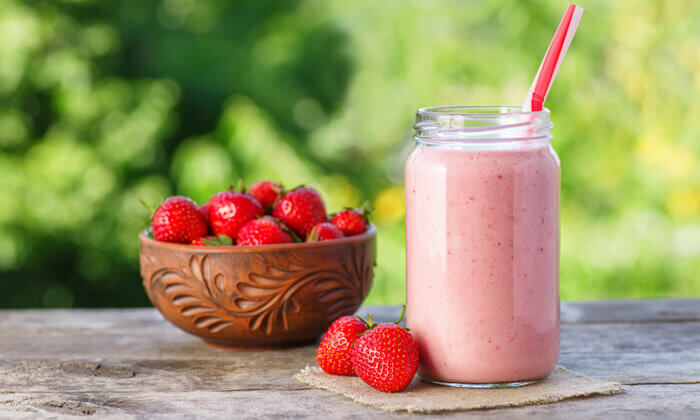The Top Anti-Aging Supplements for Healthy Skin, Body, and Mind
| | Reading Time: 5 minutes

Aging is inevitable, but that doesn’t mean you can’t look and feel your best through every stage of life. While a healthy lifestyle forms the foundation of aging gracefully, certain supplements can offer additional support. Here, we explore the science-backed anti-aging supplements that can help maintain skin elasticity, energy levels, cognitive function, and overall vitality.
Collagen Peptides: The Foundation of Youthful Skin
Collagen, the most abundant protein in your body, is essential for keeping skin firm, resilient, and hydrated. Your natural collagen production declines as you age, leading to wrinkles and sagging skin. Studies have shown that collagen peptides can improve skin elasticity and hydration and reduce wrinkles when taken consistently. Combine collagen supplements with vitamin C for best results, which is crucial for collagen synthesis. Get at least 20 grams daily.

Coenzyme Q10 (CoQ10): Energy and Cellular Health
CoQ10 is a powerful antioxidant that aids in energy production within cells. Levels of CoQ10 decrease as you age, contributing to reduced cellular function and visible signs of aging. CoQ10 supplementation can boost energy levels and maintain healthy heart function. Getting enough CoQ10 helps maintain skin elastin; similarly to collagen, levels of CoQ10 decline with age. When this happens, your skin is more prone to wrinkles, fine lines, and a dull appearance. Adding CoQ10 into your skincare routine may counteract these effects. A 2016 study found that CoQ10 supplements can improve skin smoothness and reduce wrinkles.

Resveratrol: The Anti-Aging Power of Red Wine (Without the Hangover)
Resveratrol, a polyphenol found in red grapes, has gained popularity for its potential anti-aging benefits. Known for its powerful antioxidant properties, resveratrol helps combat inflammation, supports heart health, and may even slow cellular aging. Research also suggests it can stimulate the production of sirtuins, proteins that play a role in longevity and cellular repair. Adding resveratrol to your routine can promote healthier skin and support overall health. Take 100 mg daily.

Vitamin D: Bone, Muscle, and Immune Support
Vitamin D, called the “sunshine vitamin,” is critical for healthy bones, muscles, and immune function. Deficiency in vitamin D has been linked to premature aging and a higher risk of chronic diseases. Adequate vitamin D levels support skin cell growth, repair, and metabolism, which is essential for maintaining a youthful appearance. New research found that vitamin D is actually a type of hormone with nutritional activity. A 2021 study found evidence for the universal role of vitamin D associated with hormone activity. Consider taking a vitamin D supplement, especially during the winter months or if you have limited sun exposure. Take 1000-4000 IU daily with vitamin K2.

Astaxanthin: The Potent Skin-Protector
Astaxanthin, derived from algae, is one of the most potent antioxidants. It protects skin from UV damage, which is a primary cause of premature aging, and supports skin elasticity and moisture. A 2020 study found that individuals taking astaxanthin showed improved skin elasticity, texture, and hydration. Astaxanthin is a popular ingredient in high-quality anti-aging supplements and can also be found in salmon and other marine foods. Take 4 mg daily.

Vitamin E: The Skin’s Best Friend
Vitamin E is another antioxidant that helps protect the skin from oxidative stress, a significant contributor to aging. Combined with vitamin C, it can improve skin texture, reduce wrinkles, and boost collagen production. Look for a natural form of vitamin E in supplements, as it is better absorbed and utilized by the body than the less expensive synthetic E. Take 250-500 mg daily.

Curcumin: Anti-Inflammatory and Cellular Health
Curcumin, the active compound in turmeric, is renowned for its anti-inflammatory and antioxidant properties. Chronic inflammation accelerates aging, so managing it is crucial for maintaining youthfulness. Curcumin supplements, particularly those with enhanced bioavailability, can protect cells, boost immunity, and improve skin tone. Some studies also suggest curcumin may support cognitive function and joint health, adding to its versatility as an anti-aging supplement. Take 500-1000 mg daily.

Omega-3 Fatty Acids: Joint, Heart, and Skin Benefits
Omega-3 fatty acids, found in fish oil, are essential for reducing inflammation and promoting heart, brain, and skin health. They can also help maintain skin moisture, reduce the risk of heart disease, and support cognitive health—all essential aspects of aging well. Research shows that people who consume adequate omega-3s have fewer wrinkles and better skin hydration. Take 250-500 mg with meals twice daily.

Choose Clinical Grade Supplements for Maximum Anti-Aging Benefits
When selecting anti-aging supplements, look for high-quality, clinically tested products with optimal bioavailability. Consider speaking with a functional medicine healthcare provider to tailor supplements and dosages to your unique needs and ensure they fit your lifestyle and health goals.
A consistent, evidence-based supplement routine can support graceful aging, helping you maintain vitality, energy, and radiant skin. You can feel your best at every age with the right anti-aging strategy.
References
Žmitek K, Pogačnik T, Mervic L, Žmitek J, Pravst I. The effect of dietary intake of coenzyme Q10 on skin parameters and condition: Results of a randomized, placebo-controlled, double-blind study. Biofactors. 2017 Jan 2;43(1):132-140. doi: 10.1002/biof.1316. Epub 2016 Aug 22. PMID: 27548886.
Ellison DL, Moran HR. Vitamin D: Vitamin or Hormone? Nurs Clin North Am. 2021 Mar;56(1):47-57. doi: 10.1016/j.cnur.2020.10.004. Epub 2020 Dec 28. PMID: 33549285.
Ng QX, De Deyn MLZQ, Loke W, Foo NX, Chan HW, Yeo WS. Effects of Astaxanthin Supplementation on Skin Health: A Systematic Review of Clinical Studies. J Diet Suppl. 2021;18(2):169-182. doi: 10.1080/19390211.2020.1739187. Epub 2020 Mar 23. PMID: 32202443.
Vaughn AR, Branum A, Sivamani RK. Effects of Turmeric (Curcuma longa) on Skin Health: A Systematic Review of the Clinical Evidence. Phytother Res. 2016 Aug;30(8):1243-64. doi: 10.1002/ptr.5640. Epub 2016 May 23. PMID: 27213821.


